FlagSHIP courses are designed to provide immersive and hands-on experiences in January (JanTerm). Take a look at what you can select from this JanTerm.
JanTerm 2025 Courses
JanTerm 2025 Courses

Instructor: Adebukola Adeyemi
Format: Biases… Who Said Women Don’t Do Mathematics?!
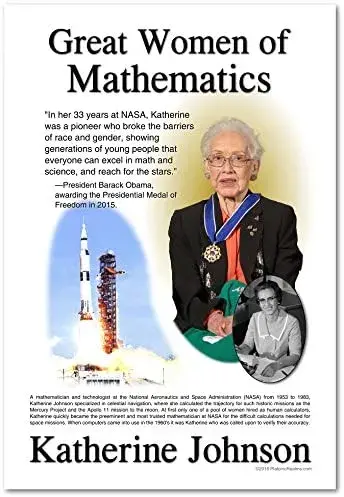
Description: For centuries now, women have been making huge impacts in mathematics, despite the various challenges and obstacles in their way. This course will explore and research some of the biases (relating to race, culture, etc) that exists in mathematics and the effect on our world, with a focus on women – an underrepresented group in mathematics. This course explores major accomplishments and contributions by women in mathematics, as well as their impacts on our world. Some of these mathematicians are the NASA team of “human computers” who made major impacts in early spaceflight, the first Nigerian woman to lead a major University, and first woman to earn a PhD from the University of Michigan. Furthermore, we will explore the struggles women have endured and still have to endure. As well as the role power and privilege play in the issue of bias in our society. We will take a day trip to Kennedy Space Center, Cape Canaveral, FL to see first-hand some of the history made by female mathematicians. In the process of learning about notable female mathematicians and the types of bias in mathematics, students will learn about other cultures, as well as the roles power and privilege play in forming those biases. This course emphasizes reading, discussions, activities, day trips, group project, watching videos, reflections, and presentations. No prior mathematical expertise is needed for this course, no computations whatsoever is required or will be done in this course, this is a course more in line with the history of Mathematics!
Instructor: Angi Semegon
Format: Intensive Format Seminar
Description: This course is an exploration of the influence of culture on our psychological processes related to the development of one’s identity. We will explore, first-hand, the ways in which a sample of First American beliefs, practices, rituals and traditions influence perception of the natural world and the interconnectedness of all beings as it relates to construction one’s self-concept. We will experience the lessons of traditions, rituals, and teachings to gain insight into current issues such as privilege, discrimination, gender roles, and one’s relationship to self and others. We will examine both the uniqueness and universality of psychological processes from the cultural perspective of indigenous people of North America. Our investigation of values and beliefs of another culture will lead us to deeper understanding of the influence of our own culture and the way it shapes the developing self. Ultimately this course offers students an experiential opportunity for an intimate exploration of self through an ancient lens.
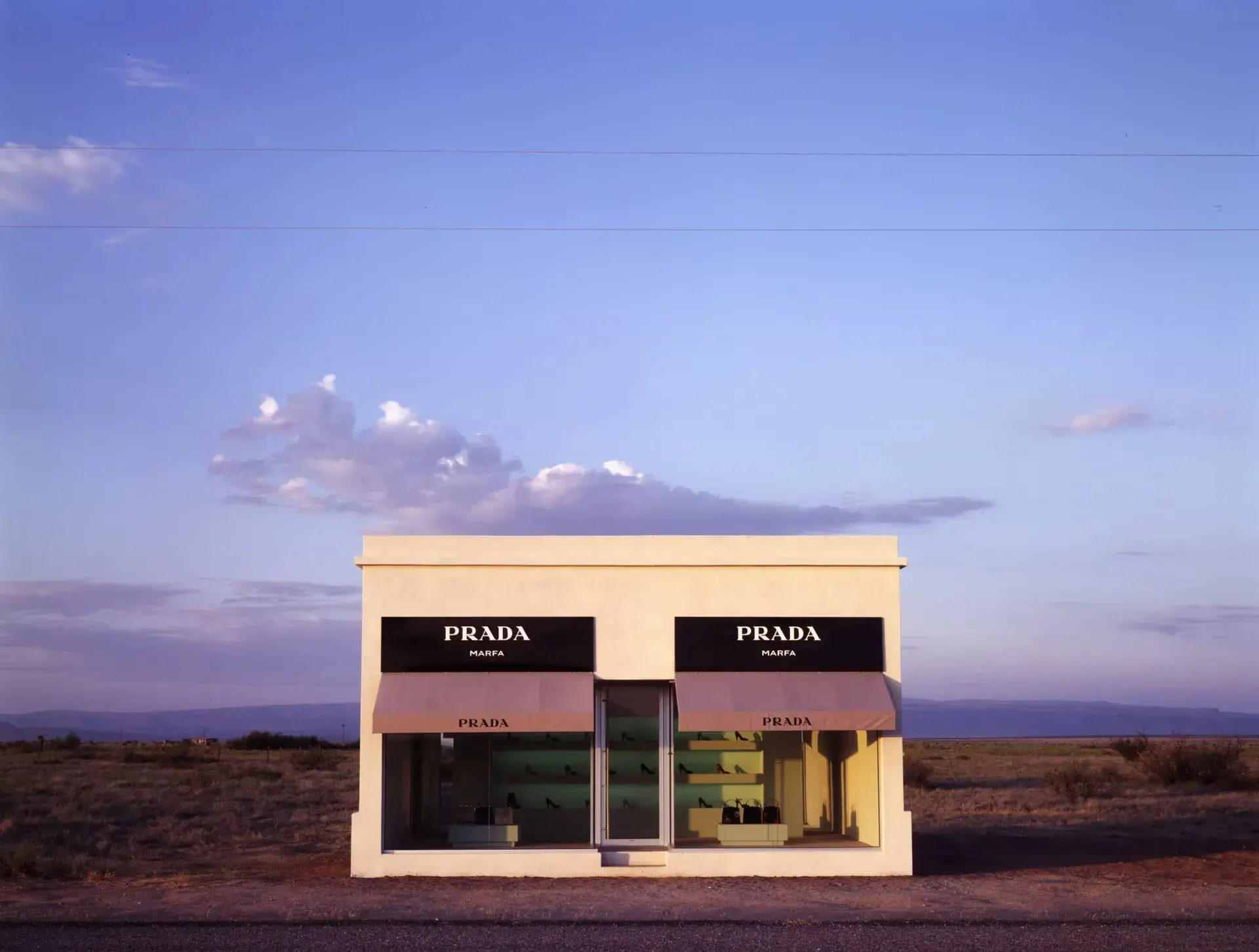
Instructor: Annie Schultz
Format: Study Away
Description: When we think about exploring diversity, plurality, and difference, our mind often goes to densely populated urban environments, where lots of people from a variety of cultural backgrounds converge and live closely together. However, in this course, we’ll explore what vast, empty space can teach us about culture and art. We will venture to the tiny town of Marfa in the high desert of far west Texas. Known since the early twentieth century for the “Marfa Lights,” a mysterious geological phenomenon, Marfa cultivated cultural lore when the minimalist artist Donald Judd made the town his home and backdrop for his art in the 1970s. Since, Marfa has drawn artists, musicians, writers, and the generally curious from around the world to experience the zany ethos of the 200-miles- from-anywhere art hub. But as with any iykyk place, there’s much more to Marfa than minimalist art and hipster festivals; Marfa has a long indigenous, colonial, railroad, and military history, all of which exists alongside and is entangled with the twentieth century American art culture that consumes the town today. These layers of history, culture, and art should resonate with us St. Augustinians; our town also has many layers and textures of art and culture informed by our town’s layered history. Also like St. Augustine, Marfa is a place to which folks flock to see art that is interesting and beautiful, but there’s a lot the tourist doesn’t see. This course is about not only viewing the art of Donald Judd and other mid-late twentieth century artists amidst a striking landscape, we’ll also peel back the layers of this hipster art mecca to learn more about what was there before Judd, what the transformation of the town from middle-of-the-desert watering hole to hipster art mecca means for the people who have lived there for generations, and why, exactly, Judd chose this unique location to make a part of his work. We’ll discuss, read, and write about art and gentrification, culture and positionality, looking and seeing.
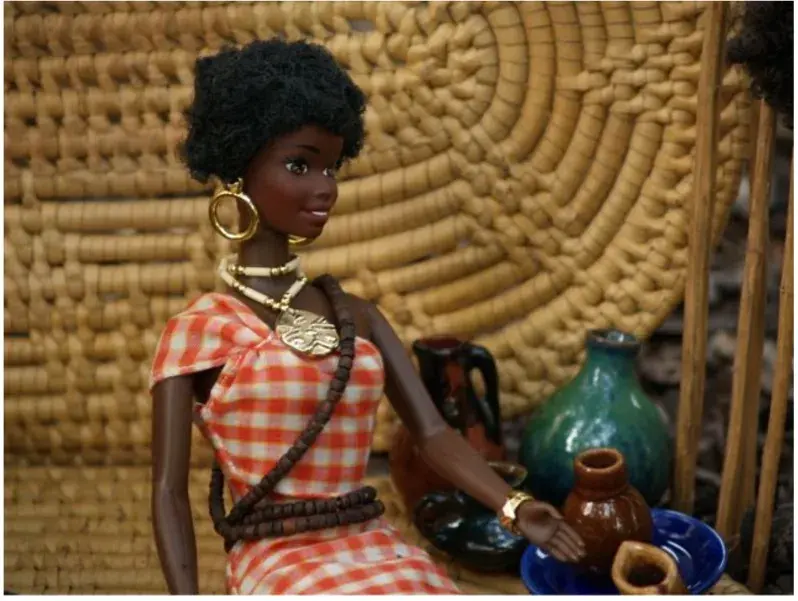
Instructor: Ashley Simmons Coffey
Format: Intensive Format Seminar
Description: This course will explore the ways in which the United States generally comes into contact and engages with sub-Saharan African imagery and motifs in its own cultural products, among them, films, advertisements, newspapers, popular culture, tourist destinations, and museum exhibitions. This class will examine concepts about race, culture, and socio-economic factors and how they are reflected in cultural products as well as the ways these products help to create and shape these notions. The class will also analyze how ideas about and representations of African cultures are at the same time negotiations of Americans’ understandings of themselves and their perceptions of what is occurring on the continent of Africa. Additionally, this course will engage in field trips to the Savannah African Art Museum and Disney’s Animal Kingdom. The cost of this class is $200 and due October 1, 2024, via CashNET.
Instructor: Brenda Kauffman
Format: Study Abroad
Description: This FlagSHIP course offers an immersive global learning experience in Costa Rica.
It will provide students with a forum for critical reflection on community-driven issues, intercultural experiences, power and privilege, and critical global engagement.
Students will have the opportunity to meet locals who are engaged in sustainable farming and learn how Costa Rica relies on nature for its significant tourism industry. We will spend 10 days in Costa Rica.
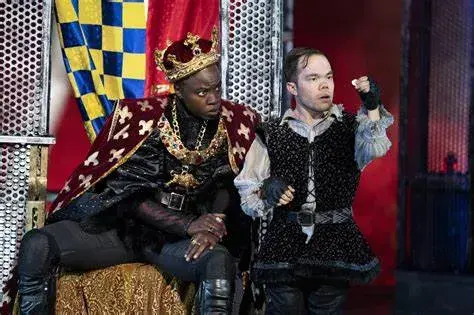
Instructor: Christine Fogarty
Format: Intensive Format Seminar
Description: This FlagSHIP class will combine play reading with discussion on campus involving a final creative project. You will examine diverse cultural groups, norms, and behaviors by learning about inclusive access in theatre and film. This examination will include the studies of playwrights, actors, and organizations articulating commitment to equity, diversity, and inclusion. Through the creative project, you will begin to examine cultural factors that can give and deny privilege. Our hands tell stories about our identity and shape our own unique experience in this world. Issues of identity and cultural differences will be approached throughout the course, including an overview of Theatre and subtopics related to diversity issues. Reflections on accessibility in theatre and performance arts fosters an understanding of the pluralistic nature of American society, promotes an appreciation of diversity, and focuses on various aspects of race, gender, and ethnicity as represented onstage.
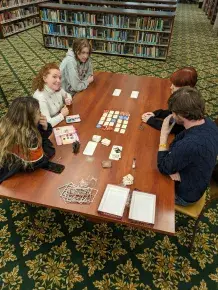
Instructor: David Moody
Format: Intensive Format Seminar
Description: This course is an intensive-format seminar in which you explore tabletop games ranging from CLUE to DUNGEONS & DRAGONS. These “games” are complex systems designed to build worlds, gamify stories, systemize creativity, and reflect the cultures that made them. By playing and deconstructing contemporary games, as well as designing your own game, you will learn about game design, narratology (the study of the structure of stories), and ludology (the study of actions and events in games). You will also engage the field of creativity studies by focusing on key social and intellectual currents in the study of genius, innovation, and creativity.
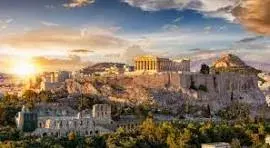
Instructor: Deborah Teague
Format: Study Abroad
Description: "Immersion in Greece, the Birthplace of Western Civilization: Travel Writing about the History, Culture, and People of Athens and the Greek Isles" will provide students the opportunity to immerse themselves in the country’s historical treasures, rich cultural history, and amazing beauty, as well to interact with locals from diverse ethnicities, backgrounds, social classes, and neighborhoods.
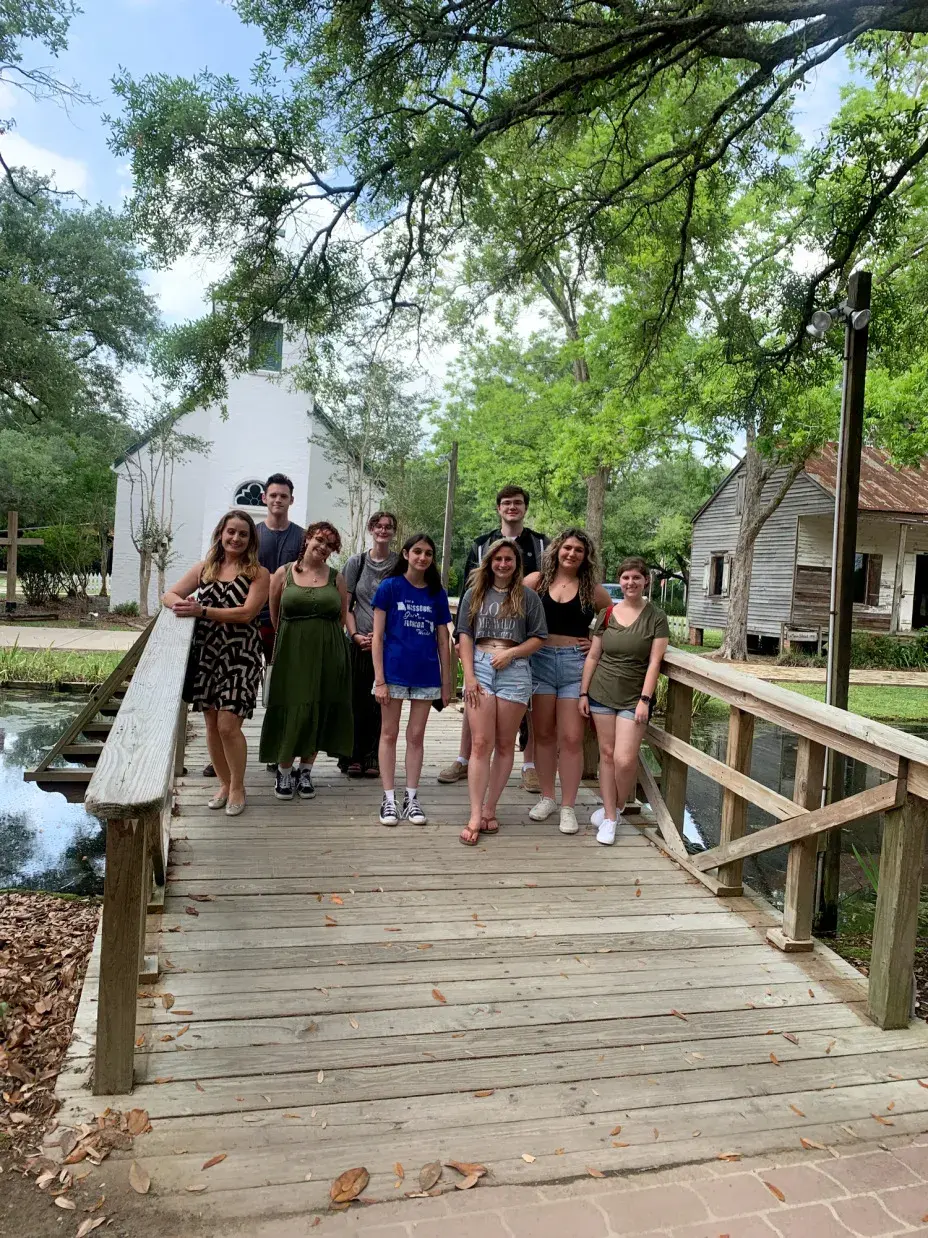
Instructor: Eugenia Charoni
Format: Study Away
Description: The course studies the cultural and historical richness of Cajun, Country in Lafayette, Louisiana. Through visits to several local sites (Vermillionville, Village Acadian, Acadian Memorial, Acadian Cultural Center, Longfellow- Evangeline State Historic Site, CODOFIL, Jefferson Island Plantation, Alexander Mouton House, Whitney Plantation, St. John the Evangelist Cathedral, etc), workshops (Cajun cuisine, folklore dance, ragdoll etc.) and interaction with local “acadiens”, students will acquire substantial practical knowledge about this diverse area of the Unites States, while they build their intercultural competence and move beyond common stereotypes. The course includes a trip to Lafayette, LA from January 7th, 2025, to January 14th, 2025.

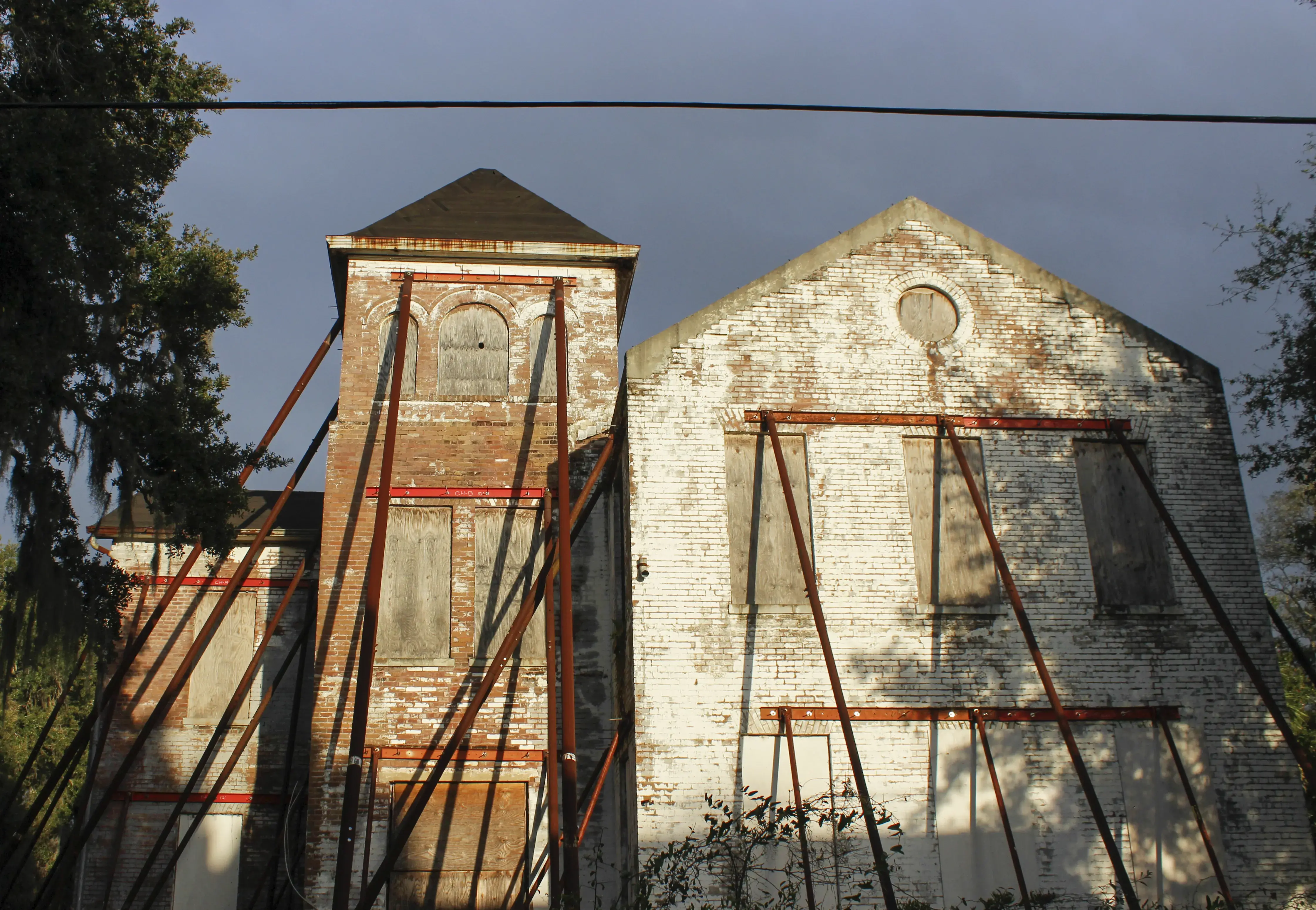
Instructor: Jason Schwab
Format: Intensive Format Seminar
Description: A Photographic Investigation of a Changing St. Augustine is a two week intensive documentary photography course that examines the effects of gentrification on local communities within St. Augustine. Through the use of photography, language, and research you will question how an influx of affluence and differing cultures may either negatively or positively affect specific communities within our city. Each student will create a body of images from the experiences and research they encountered during the course and then as an entire class we will work together to create a photographic book that synthesizes all of our work into a cohesive narrative.
Instructor: Jennifer Melvin
Format: Intensive Format Seminar
Description: In this class students will critically analyze the genre of reality travel television by viewing episodes of Anthony Bourdain’s “Parts Unknown”. We will learn how to use self-reflexivity to recognize our own biases and develop inter-cultural competence. You will describe and analyze some of the problematic tropes found within the episodes of “Parts Unknown”, including the tourist gaze, “going-native”, colonialism, colonial nostalgia, and cultural brokers. Learning to be a socially responsible global citizen requires knowledge of how tourists and tourism impact developing areas in countries with few resources, as well as how to study people and places while respecting their local customs, privacy, sacred places, etc. We will watch episodes of Parts Unknown set in Africa and Asia and discussion leaders will research the history, political power struggles, past colonialism and whether it is still reflected in the material or symbolic culture of the place. The second part of this class involves learning about local tourism and how it impacts our larger community. To better understand how tourism impacts a community, students will also conduct their own research on local tourism to uncover its impacts on the residents of St. Augustine. You will learn how to use ethnographic (field) research and you will learn to conduct historical research through field trips we will take and with your assigned group. Members of the class will conduct their own research on St. Augustine’s tourism economy, and critically analyze the effects tourism has on the broader community and the power structures and political economy in which local tourism is entrenched, along with the everyday impacts of tourism on the people who reside in St. Augustine.
Instructor: Jessica Howell
Format: Study Abroad
Description: This FlagSHIP is a 11 day study abroad trip to the coastal city of Malindi, Kenya. While abroad, students will engage in a variety of activities, including land and water safaris, cooking and farming in local villages and volunteering in a village school. Centering on the theme of culture, environment and development, experiences will highlight the intersectionality of all three and their impact on sustainability and future growth.
Instructor: Jessica Jenkins
Format: Community Integrative Education (CIE)
Description: This course will explore the dynamics between culture and community in St. Augustine by focusing primarily on Native American, African American, and Menorcan experiences at the Guana Tolomato National Estuarine Research Reserve, Fort Mose, Fountain of Youth, and the Lightner Museum. Students will learn about cultural heritage at these sites over time and also contribute to what we know about this heritage through engaging in oral history research, historical research, archaeology, and material culture analysis. We will specifically focus on areas of these site that are under high threat of human and climate impacts to mitigate this loss of this cultural heritage.
Instructor: June Ann LeFors, Jennifer Catalano
Format: Community Integrative Education (CIE)
Description: Deaf Ecosystem, a Community-Integrative Education (CIE) designated course, will provide students with a general orientation to the experiences of Deaf people including their daily life and cultural, educational, and employment experiences through an overview of the historical, philosophical, and social aspects of the lives of Deaf people in the United States. Through the exploration of the concept of the Deaf Ecosystem, students will be encouraged to form a clearer understanding and appreciation of the cultural pluralism of American society. Deaf Ecosystem enables empowerment, purchasing power, and economic mobility of Deaf and hard of hearing individuals by retaining and harnessing the collective socio-economic power within the community’s individuals, organizations, and businesses through community collaboration and support. The goal is for students to develop a sense of cultural humility and an appreciation of the perspectives from the Deaf community in order to become allies that support and participate productively in a Deaf Ecosystem.
The course is designed for students with little or no previous knowledge of American Sign Language (ASL).
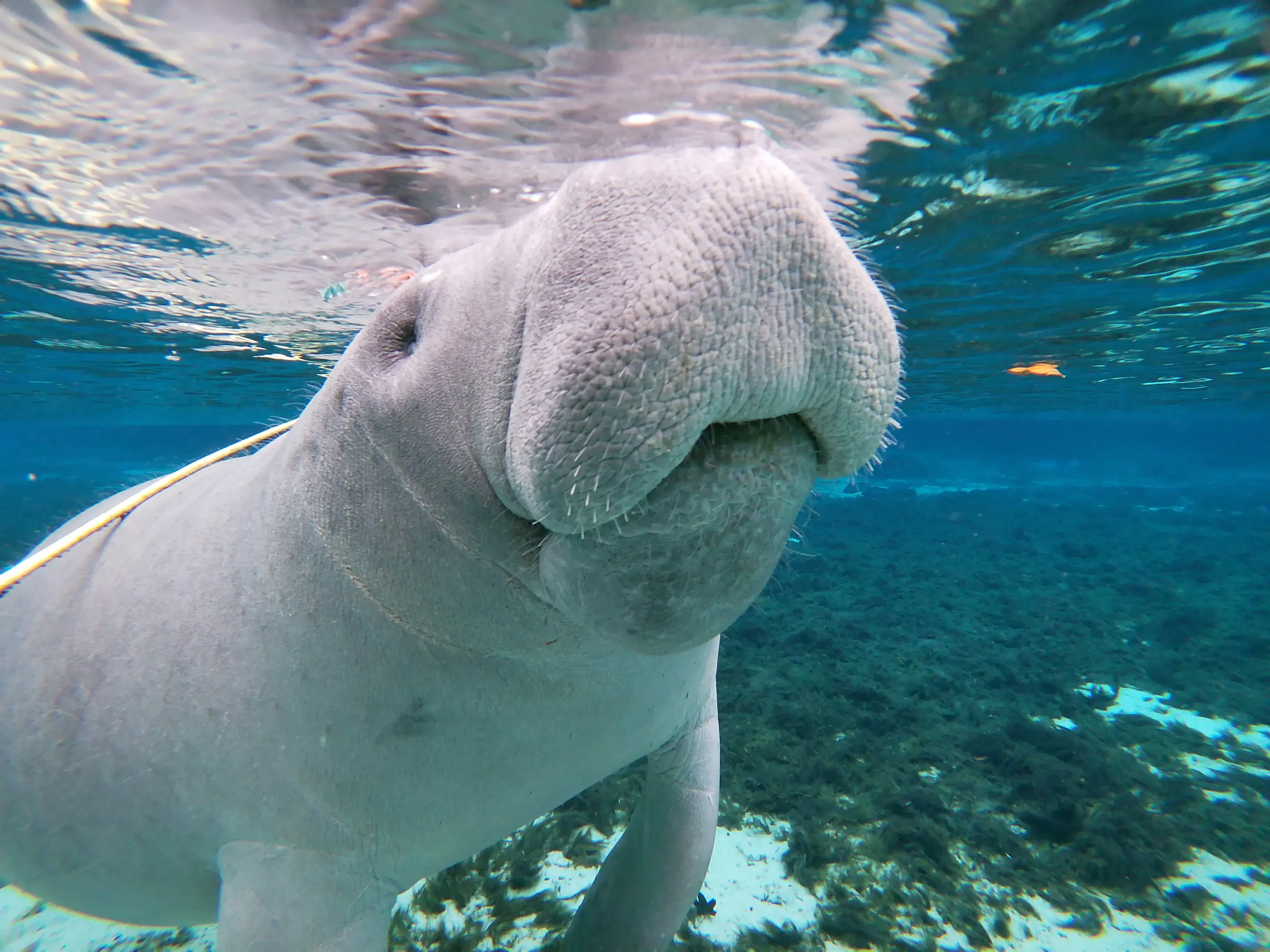
Instructor: Kim Bradley
Format: Intensive Format Seminar
Description: “To the Waters and the Wild: A Journey to Digital Detox, Mindfulness, and Embracing Solitude” offers students the opportunity to contemplate the psychological impact of constant connectedness and digital dependency and immerse themselves in the “wild” where poet and philosopher Wendell Berry says “one’s inner voices become audible, and in consequence, one responds more clearly to other lives.” The class will commit to a five-day social media fast, while exploring the meaning of a fulfilling life through the work of great loners Michel de Montaigne and Henry David Thoreau to Eustace Conway and Sylvain Tesson. Frequent field trips include kayaking, snorkeling, and nature walks.
Instructor: Leah Page
Format: Community Integrative Education (CIE)
Description: This course will combine playwriting and theatre making with an interview-based community theatre project. Interview-based (also known as documentary or verbatim theatre) uses interviews as the primary text for generating original play scripts. Students will spend the first part of class reading/watching documentary theatre pieces, participating in class discussions around the topic, building ensemble, and honing their interview skills. They will subsequently interview each other and participants from the Council on Aging. These interviews will become the content from which they will write an original piece of documentary theatre.
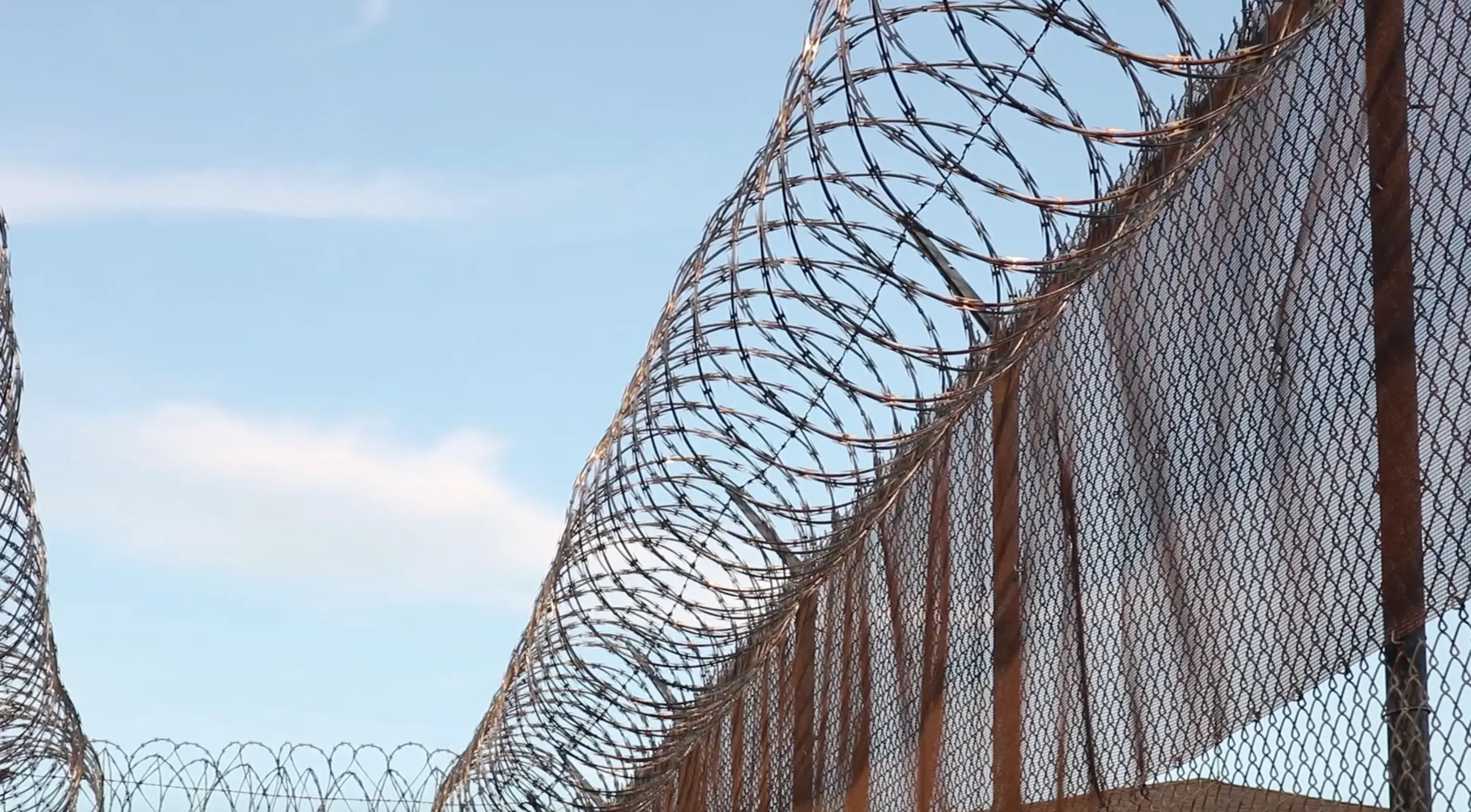
Instructor: Leslie Robison
Format: Community Integrative Education (CIE)
Description: This course will combine reading and discussion on campus with an art project, Cellmates. Together, these activities are meant to examine the cultural factors that give or deny privilege to various citizens within our community. In particular, we will work with young men incarcerated here in St. Augustine at the St. Johns Youth Academy (SJYA). As a part of this art project, each class member will be paired with a young man and get to know him through individual activities such as letter-writing and image-sharing, and eventually, by meeting face-to-face and working with the entire group. Flagler students will help to create a support network for these young men through directed activities. Through assigned reading and writing exercises, we will educate ourselves about the systemic factors that hinder true equality. For some, this does not sound like “art,” but it is part of a contemporary approach to art-making that favors the connections made between people over other effects art has on society. For example, we could look at a painting of a teenager behind bars. We could understand by the way the artist uses their brushstrokes, or by the expression on the teenager’s face, that the artist wants us to feel empathy for the prisoner. If we removed the painting as a barrier between the artist and us, its viewers, we could talk to the artist directly about their intentions and our responses. And it wouldn’t just be the artist lecturing us if it’s a real conversation. That is how you should see this experience. I may be the artist who has conceived of this project, but you are a full participant and, as such, you are just as responsible for creating a meaningful experience- we are making this together with our young, imprisoned partners. The term for this type of work is Social Practice, but it is also referred to as Socially Engaged Art due to the fact that it forms communities, emancipates participants, and shares governance in building, and responsibility for creating, the art or meaning.
Instructor: Lisa Van Zwoll
Format: Intensive Format Seminar
Description: Reality television, whether beloved or despised, plays a significant role in how people see themselves and others in the world. The identities constructed in these shows create tension between the real and fictional worlds the inhabitants and viewers occupy. This course explores the fictional/factual divide viewers contemplate when rooting for their favorite tv-celebribities, feeling their traumas, and identifying with a complex cast of “real” characters. Reality television becomes a visual memoir that inspires us to think about our own autobiographical potential. This form of docudrama gives us what the subjects are willing to share and what the producers want us to see. Is there truth in it? Of course, there are choices made that influence the final story, and that might be far from a truthful narrative. Some see reality tv as a wasteland or frivolity, but others look critically at the stories told and untangle them to explore the value in reading those texts in an autobiographical context. Perhaps memoir or autobiography in a different format, but stories of lives all the same. This course will immerse students in the “real” worlds offered by television networks and ask what life stories are being told, how they help and harm, and what stories they would like to tell about themselves.
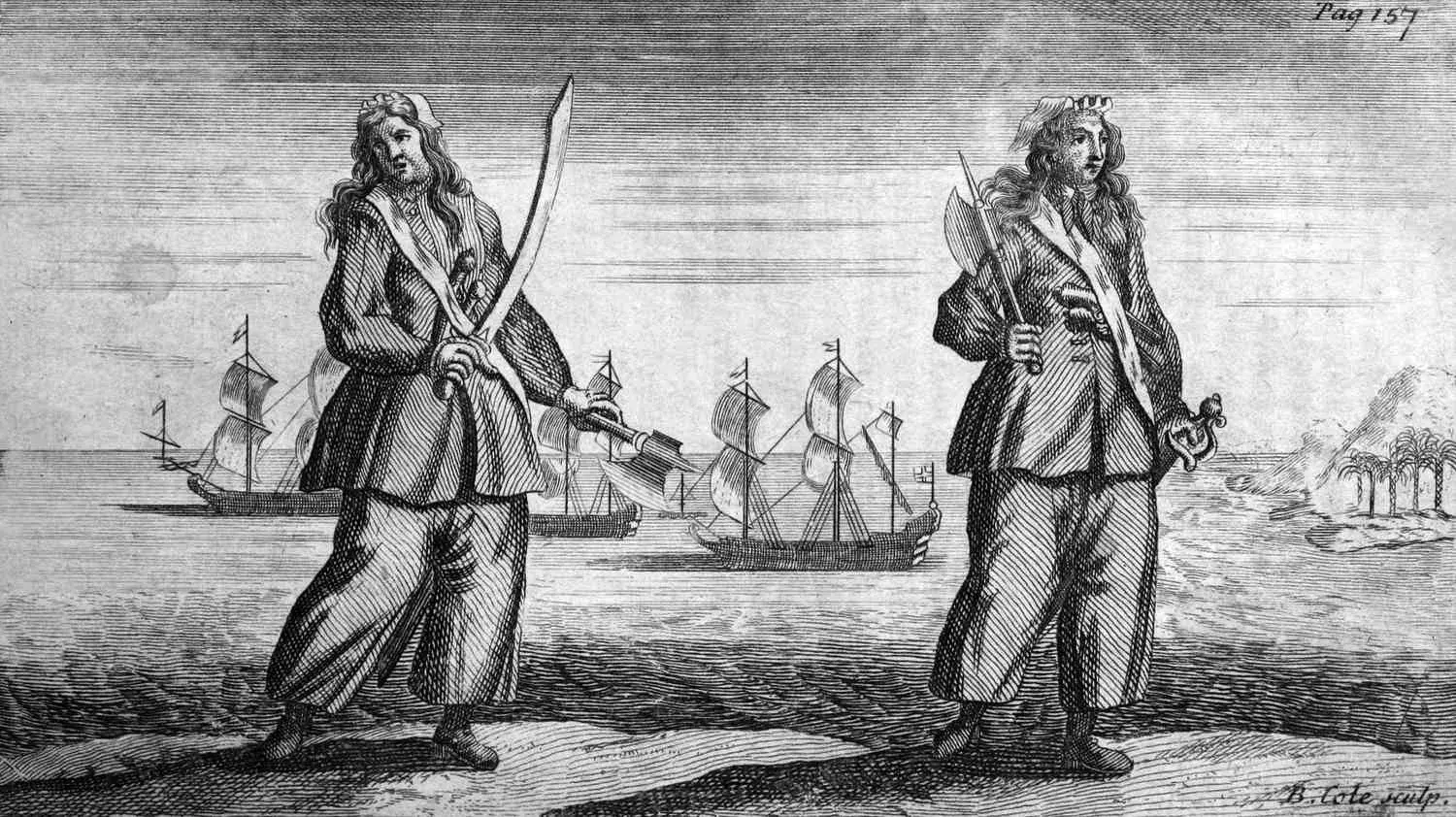
Instructor: Sam McMillan
Format: Intensive Format Seminar
Description:
When we think of pirates, especially in popular imaginings, a few images come to mind: often we picture masculine Anglo-swashbucklers such as Jack Sparrow, Captain Hook, Long John Silver, standing on the deck of a creaking galleon, hands gripping the helm, as they shout orders below to a crew of burly men all who obediently comply as the ship heaves to in advance of much looting and plundering, shortly after which the merry band beats a hasty return to an anarchic, dark, and dirty island sanctuary filled with rum and wenches. This class aims to complicate such a conception—especially its assumptions regarding race, gender, politics, and the environment. Pirates, you see—across literatures, histories, and cultures—were, in many instances, a strangely diverse, strangely egalitarian, strangely environmentally-aware bunch. Across this J-Term we will explore the hows, whys, and wherefores. How did these diverse groups manage to come together? What role did power, privilege, and inequity play in their challenging of social norms? How might have shifting environments and notions of wildness factored into the pirates’ sense of self and community? To what extent should we even view the pirate, either in fictions or in reality, as a model for radical social change? As we work to answer these questions, examining legends, historical documents, short stories, poems, novels, philosophical tracts, and scientific reports, we will also put our classroom discussions in conversation with our own firsthand encounters during explorations of the Saint Augustine Pirate Museum, the Castillo San Marcos, Fort Matanzas, and a barrier island steeped in pirate lore (Cumberland Island, GA). In doing so, we will attempt to better understand how hardship, isolation, and wilderness can both foster and hinder equitable and inclusive societies.
Instructor: Lori Lee
Format: Community Integrative Education (CIE)
Description: This course will explore the dynamics between culture and community in St. Augustine by focusing primarily on Native American, African American, and Menorcan experiences at the Guana Tolomato National Estuarine Research Reserve, Fountain of Youth, Fort Mose, and Lightner Museum. Students will learn about cultural heritage at these sites over time and also contribute to what we know about this heritage through engaging in oral history research, historical research, archaeology, and material culture analysis. We will specifically focus on areas of these sites that are under high threat of human and climate impacts to mitigate this loss of this cultural heritage.
Instructor: Matthew Brown
Format: Undergraduate Research
Description: Numerous research articles and databases highlight the inequity in environmental pollution, and, specifically, water pollution and poor water quality, among a range of socioeconomic status. Lower income and minority communities are often faced with significantly worse environmental conditions and issues with overall water quality and drinking water quality. This course came to fruition after three years of water quality research by Dr. Matthew Brown and student researchers showed significantly higher bacterial loads in waters of the northern San Sebastian River bordering West Augustine. This course will be a combination of community integrated education and undergraduate research to broaden student perspectives as it relates to water quality, socioeconomic status, and privilege. The course will examine inequities in environmental infrastructure, remediation, and pollution among major cities in the US and here locally in Saint Augustine, FL. Students will meet with members of the West Augustine Community Redevelopment Agency (WACRA) early in the course and hear about observations and concerns as it relates to environmental pollution and water quality in the area. Students will then develop research questions and design a small-scale research project as it relates to water quality and environmental pollution between West Augustine and other areas in and around Saint Augustine. Students will collect water samples and/or other environmental samples and perform water quality analyses and measurements at Flagler College. In addition, students will explore peer-reviewed literature and other readings highlighting the relationships among environmental pollution and socioeconomic status. Early on in the course students will develop an environmental perspectives survey to be distributed to residents of West Augustine and other neighborhoods around Saint Augustine. Finally, students will carry out an "environmental cleanup" along the shores of the San Sebastian River and the West Augustine community. This will involve the use of the new dock behind Abare Hall and the kayak launch.
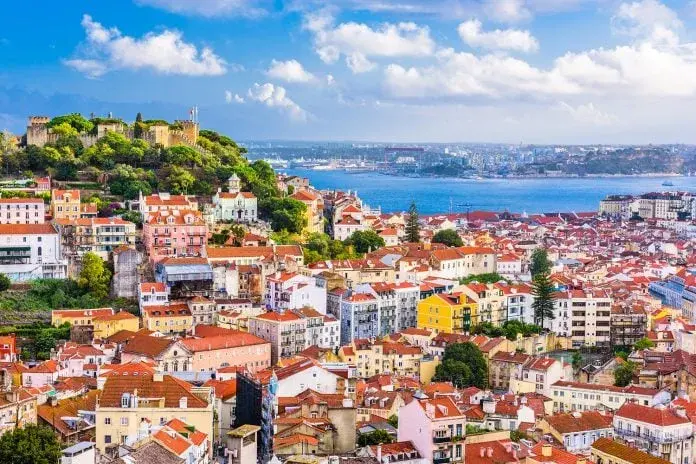
Instructor: Nicholas Miller
Format: Study Abroad
Description: This study abroad FlagSHIP offers you the chance to discover the history and culture of Portugal, one of Europe’s most beautiful countries. Based in the capital city of Lisbon for a week, you will visit key sites across the city; take cultural excursions along the Portuguese coast, including to the giant waves of Nazaré; taste the country’s cultural and culinary delights; and ponder central issues of Portuguese history and contemporary society with leading scholars and experts. By exploring three key themes—empire and colonial expansion; dictatorship, revolution, and democracy; and contemporary society—you will gain crucial intercultural communication skills, engage with the full complexity of Portugal’s fascinating history, and get an insider’s look into contemporary conditions in one of Europe’s trendiest corners. This 7-day experience includes accommodation in 3-star hotel (shared with one other student); daily buffet breakfast; three meals; and two day trips within Portugal.
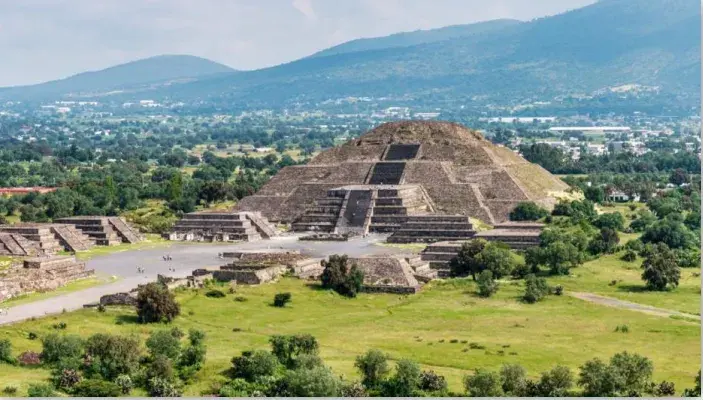
Instructor: Carrie E. A. Grant
Format: Study Abroad
Description: Travel to Mexico to explore the international culture up close in three of Mexico’s diverse locations. Meet with nonprofit organizations and see their work on-the-ground. Spend time with Mexicans, learning local language and culture. Hike and horseback ride to locations to observe the Monarch migration, see how ecology is playing a role in tourism, and learn about the conversation of protected areas. Head out on the water to swim safely with sea lions, and spend a day learning about the Bay of La Paz Project – Saving the Sea of Cortez. Explore the local markets and historical sites in the town of Valle de Bravo and Mexico City. This course is designed to introduce students to the eco-tourism and sustainability projects in Mexico. By participating in eco-tours, hearing from the local leaders, and exploring the local culture, students will gain a greater insight into the impact of eco-tourism in Mexico and the sustainability efforts taking place. Students will also participate in a number of cultural activities during their time in Mexico as well as several excursions to important local sights.
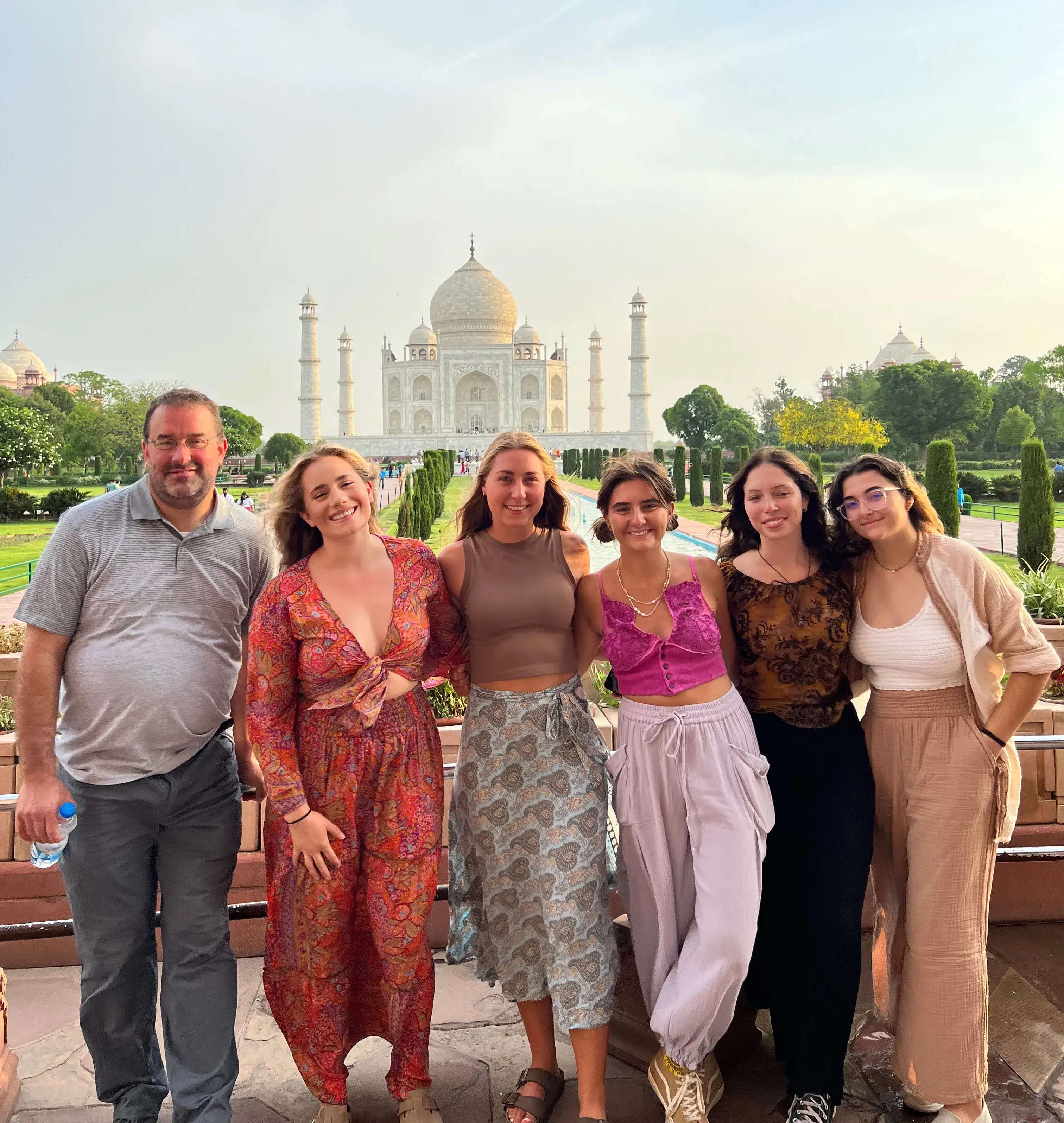
Instructor: John Young
Format: Study Abroad
Description: The subcontinent of India has been a key locus of world civilization for at least five millennia. The origin place of two of the world’s four largest religions (Hinduism and Buddhism), along with several significant smaller faiths (e.g., Jainism, Sikhism), it has also been part of both Muslim-ruled (Mughal) and Christian-ruled (British) empires. Furthermore, India has been a key participant in almost every important trend in world history—the spread of commerce, imperialism, colonialism, nationalism, the twentieth-century turn to democracy, and the twenty-first century rise in ethnic nationalism to name only a few. This course will examine the impact of a few of these historical trends on India, with special emphasis on 1) the country’s social and cultural (especially religious but also culinary and other) diversity and 2) the impact of nationalism, democracy, and globalization. The immersive study abroad experience is a key component of the course; the readings and discussions will supplement the field experience of studying abroad. We will visit five cities: Delhi (the nation’s capital and largest city, founded during the Mughal Dynasty), Agra (home to the Taj Mahal), Jaipur (capital of Rajasthan and important center for Maharaja power), Varanasi (on the Ganges River, the most sacred site in Hinduism), and Bodh Gaya (legendary site of the Buddha’s enlightenment and home to a dozen or more ethnic Buddhist communities).
Instructors: Rachel Cremona and Wesley King
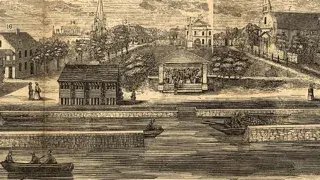
Description: This class will engage students in a structured exploration of St. Augustine. City as Text © is a model of community integrated active learning that will provide the framework for the course; it will involve 3-4 hour daily structured explorations of St. Augustine that will combine city-specific elements such as history, economics, and culture, with the themes of citizenship, diversity and democracy. In this way, the course will provide an interdisciplinary examination of the people, architecture, history, culture, and demographics of the city. In addition to assigned readings and the investigation of historical documents, students will be exploring the city – both on and off the beaten path – in order to develop long-term sensitivity and reflection about the human experience – social, cultural, economic, and political - in a built environment. The ultimate purpose of this course is for students to understand and experience not only what is normally missed in an ordinary day of one’s life – but also how much might be seen and heard. In this sense, students will be honing their observational skills – becoming more aware of how their own “lens” works in seeing the world, and thus building an understanding of how mutable the world around them is, in terms of both people and places.